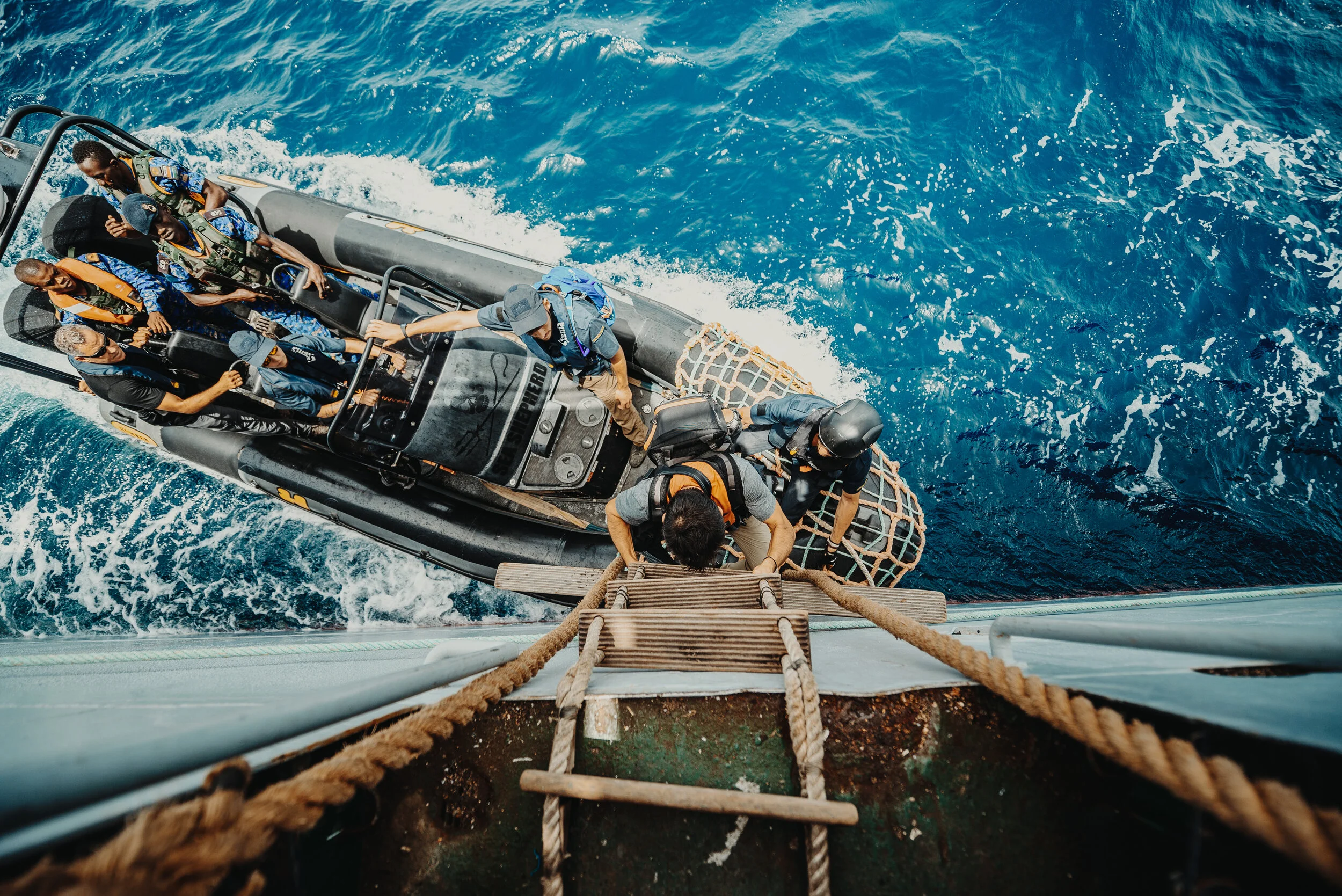The bane of unsustainable fishing
By Ian Urbina, Safina Center Fellow
Late last year, I was on a patrol off the coast of West Africa working on a piece about fishmeal and aquaculture that will be published in the New Yorker in the next several months. The story is a close-up look at how our voracious appetite for farm-raised fish in the developed world is having all sorts of harmful unintended consequences in West Africa. The story takes place in the tiny nation of Gambia—where, in the course of my reporting, I investigated the source of a mysterious, almost apocalyptic die-off of marine life; I visited a giant Chinese factory that is destroying local fish stocks to meet the global aquaculture industry’s demand for a protein supplement known as “fishmeal”; and I accompanied a law-enforcement patrol that, with the help of high-tech satellites and a specially designed boat, hunted down, boarded, and arrested local fishing vessels that were illegally working in nearby waters.
Reporting off the coast of West Africa. Photo courtesy: Ian Urbina
I experienced the growing excitement around aquaculture first hand last November when I was called to testify before Congress about labor, environmental, and human-rights abuses that occur at sea around the world. Like many of its West African neighbors, the tiny nation of Gambia has embraced the lucrative production of fishmeal, a product used around the world in the farming of fish. But in doing so the country is polluting its waters, decimating its fish stocks, and threatening the lives of its own citizens.
When I appeared before Congress, I used my designated 5 minutes to describe the diversity of crimes occurring offshore, including sea slavery, the murder of stowaways, intentional dumping, arms trafficking—and, of course, illegal fishing. I tried to make the case that the definition of illegal fishing should be broadened to include crimes not just against the fish but also against the fishers, and I emphasized that the ships fast depleting the oceans were also the ones most likely to cut costs with egregiously poor working conditions.
During the hearing, Tom McClintock, a Republican congressman from California, declared that although the atrocities occurring on foreign fishing boats may be dire, the U.S. government could do very little about them. “The simple truth,” he said, “is we don’t control these sovereign countries.” What the United States could and should do immediately, he argued, was double down on our domestic aquaculture industry. “The moment that we can produce these products more cheaply in captivity than we can catch them in the wild,” he said, “the sooner the bane of unsustainable fishing will naturally disappear.”
As a journalist in a highly politicized setting, my role was not to rebut the lawmaker, but to offer my testimony and be quiet. Still, I hoped someone else at the hearing might point out that far from being a cure-all, aquaculture is not a solution to the problem of sea slavery or to illegal fishing since, indeed, fish farming relies heavily on fishmeal, which comes from the types of boats most prone to these sorts of human rights and environmental abuses. Unfortunately, no one mentioned the fishmeal problem.
Watch the Congressional testimony here:

